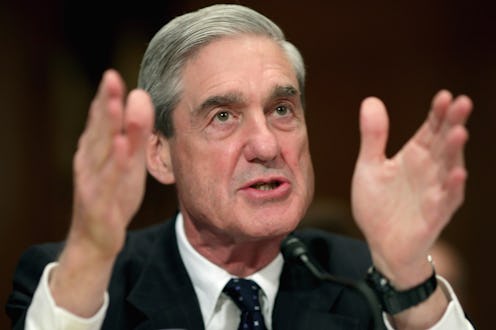News
The Obstruction Of Justice Investigation Might Be A Dead End

On Wednesday, The Washington Post released a report that special counsel Robert Mueller is examining Donald Trump for obstruction of justice in firing James Comey. This has fueled speculation that, perhaps, Trump could eventually be impeached. However, it seems unlikely that Trump will be indicted with obstruction of justice or suffer any consequences, including impeachment.
According to 18 U.S. Code § 1505, conviction for obstruction of justice could lead to up to five or eight years in prison. However, obstruction of justice is a vague term, meaning "to influence, obstruct or impede the due administration of justice," as per Section 1503 of Title 18. Furthermore, The New York Times reported that proving obstruction of justice in court beyond a reasonable doubt — the burden that the prosecution of any case must prove — is difficult at best.
However, it is highly unlikely that Trump would even get to that point because he's currently in office. Fact-checking website Politifact asserted that sitting presidents — those in office — are not generally charged or prosecuted for crimes.
This is not the first time the country has faced this dilemma: According to the dean of the University of California's Irvine School of Law, Erwin Chemerinsky, "The Watergate grand jury in 1974 named Richard Nixon an 'unindicted co-conspirator' because they did not know if they could indict a sitting president."
According to the Politifact article, this hesitation to indict a sitting president comes from the Office of Legal Counsel, which is the Department of Justice's presidential advisory group. In both 1973 and 2000, in reference to Richard Nixon and Bill Clinton, respectively, the office determined that a current president could not be criminally prosecuted. They argued that such prosecution would make it difficult for the president to do his job, and that it was up to the House of Representatives to charge a president through impeachment.
The impeachment process is when a formal charge is leveled against a government official and is akin to an indictment in a criminal case. The House Judiciary Committee formally proposes the impeachment resolution as it would a bill, including multiple articles with the details of its decision. This resolution only needs to pass in the House by a simple majority. Then, House members become "prosecutors" before the Senate, which acts as the jury and hears out the House's case. After the Senate debates, the resolution is voted on per article and requires a two-thirds majority (67 out of 100 senators) to pass.
According to The Smithsonian, Andrew Johnson and Clinton were the only two presidents who have appeared before the Senate in this type of "court." Unsurprisingly, The Smithsonian noted that had Nixon not resigned in 1974, he undoubtably would have also been impeached.
With the Department of Justice's hesitancy to indict any sitting president, let alone the current one, the results of Mueller's investigation will probably not result in any sort of criminal charge. Furthermore, it's unlikely that a Congress that's majority Republican will begin and continue the impeachment proceedings. In the end, even if he finds damning evidence, the news that Mueller is investigating Trump may not go anywhere.